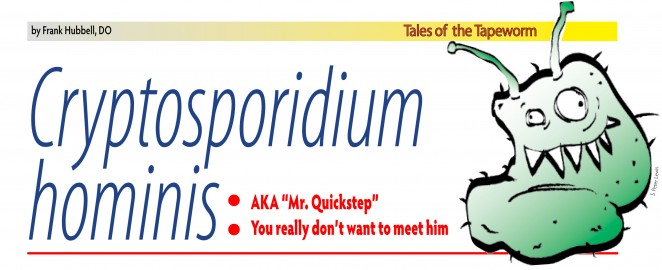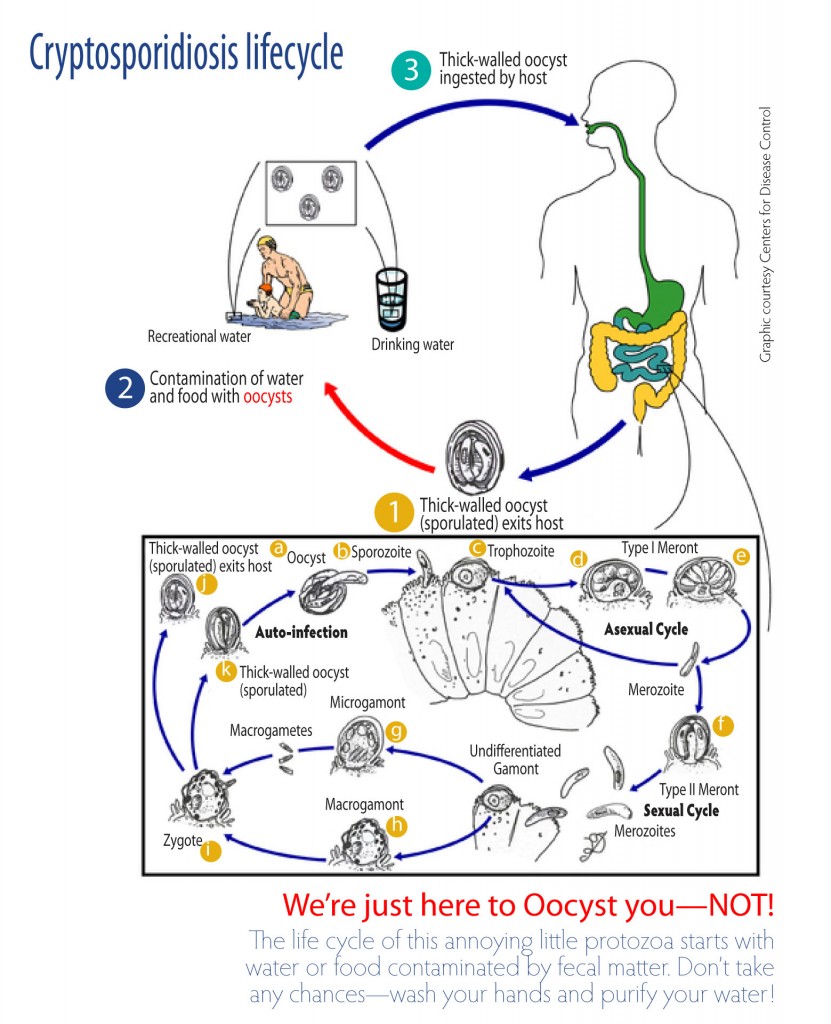
November/December 2007 ISSN-1059-6518 Volume 20 Number 6
Treatment of Diarrhea
There are multiple methods for treating diarrheal illnesses. The most important aspect of managing diarrhea is the prevention of both dehydration and electrolyte depletion. Obviously, diarrhea (as well as vomiting) can cause significant loss of fluids and electrolytes. The symptoms of dehydration are thirst, headache, dry mucous membranes, tenting of the skin, and decrease in urine output. The best indication of adequate hydration is urine output. If someone is properly hydrated, they will need to void every 2 – 3 hours, and the urine should be a light amber color. If they are dehydrated, they will void less often and will produce dark, concentrated urine.
Read more






 makes its home in the small intestine where the cyst hatches and changes into a trophozoite. (The trophozoites cause the illness—the un-hatched cysts do not.) The trophozoites then reproduce by binary fission (cell division) and the population grows.
makes its home in the small intestine where the cyst hatches and changes into a trophozoite. (The trophozoites cause the illness—the un-hatched cysts do not.) The trophozoites then reproduce by binary fission (cell division) and the population grows.